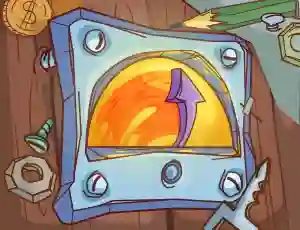Time Games
What is Time games?
Time games are a category of interactive experiences that focus on time-based mechanics, challenges, and strategies. These games often require players to manage time effectively, solve puzzles under time constraints, or navigate timelines to achieve specific goals. Time games can span multiple genres, including puzzle, strategy, and even narrative-driven games, where the element of time adds an extra layer of complexity and excitement.
• Time-based challenges: Players must complete tasks within a set time limit or synchronize actions with a timer. • Time management: Games where managing time is a core mechanic, such as scheduling tasks or optimizing workflows. • Time travel: Games that allow players to manipulate time, such as rewinding, pausing, or skipping forward to solve puzzles or alter outcomes. • Rhythm games: Titles that require players to perform actions in sync with music or beats, often with time-based scoring systems. • Time-based puzzles: Levels or challenges that require precise timing or synchronization with moving objects, clocks, or other time-sensitive elements.
These games often test players' reflexes, planning skills, and ability to think strategically under pressure. The time-based element adds a dynamic twist, making them both challenging and rewarding.
Frequently Asked Questions
What makes Time games unique?
Time games stand out because they incorporate time as a core mechanic, often requiring players to think and act quickly. This creates a sense of urgency and adds a layer of difficulty that is not found in traditional games.
Can Time games improve reflexes and focus?
Yes, many Time games are designed to test and improve players' reflexes, reaction times, and multitasking abilities. Games that require precise timing or fast decision-making can enhance these skills over time.
Are all Time games fast-paced?
No, while many Time games are fast-paced, others focus on strategic time management or time-based puzzles that require careful planning. The pace can vary depending on the specific game and its design.












